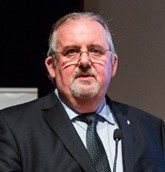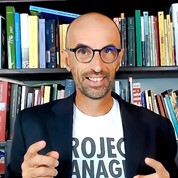(Let’s also ask Chat GPT-4)
FEATURED PAPER
By Marco Caressa and Massimo Pirozzi
Rome, Italy
ABSTRACT
The decision support tasks are evidently of primary importance in project management, since all the actions and/or approvals and/or refusals and/or changes that are relevant to the projects, including the management of the proposed modifications and/or corrective actions, are based on decisions. However, decision support issues are quite rare in project management literature and almost missing in project management standards, perhaps because they are considered specific of each project and, then, difficultly generalizable. Nevertheless, it is possible to individuate a certain “commonality” among projects in terms of both the results of the control processes and their relevant possible causes, which may be worthwhile to deepen in order to gain more effectiveness and efficiency. This paper gives an overview about the typical deviations that may occur in the projects and about some relevant good practices to manage them, proposes an innovative data-driven framework to support those decisions that are characteristic of project management, and shows some cues about how the artificial intelligence (AI) Chabot GPT-4 might empower decision support tasks in project management.
TYPICAL PROJECT DEVIATIONS AND THEIR POSSIBLE MANAGEMENT
The typical causes of project deviations are quite diverse, although the effects on the project progress may be similar, to the point that the possible indicators that are used in project management control processes may be common to different typologies of deviations. The basic drivers that may be effectively considered depend on the nature of the work to be performed, which corresponds to the influences that are internal or external to the project team and includes:
- Work that is performed by internal manpower (internal influence)
- Work that corresponds to the procurement of goods (external influence)
- Work that corresponds to the procurement of services (external influence)
- Obtainment of permissions, authorizations, etc. (external influence)
- Perceived work (external influence)
- Integration work (internal influence).
In general, although the project team usually has just a limited control on internal resources and/or factors, and has not control at all on external resources and/or factors, the project efficacy and efficiency can always be improved via a better and more complete structuring, planning, monitoring and control system and, above all, a better relationship management system.
Actually, if we consider the trends of the project performances in a ten-year period (Fig. 1), it is evident that there were and still there are systematic lacks in terms of project structuring, planning, monitoring and control, which in part are due to critical issues that are under evaluated – and therefore not taken into account properly, or not taken into account at all – and in part derive from oversimplifications of complex processes and behaviors. In fact, the today’s situation of project performances is that, approximately, with regard to efficacy, 30% projects did not meet original goals/business intents – i.e. did not meet the stakeholder expectations –and, with regards to efficiency, 55% projects were not completed on time, 40% projects were not completed within original budget – these last data are probably related with a 30% projects that experienced scope creeps. It is interesting to notice that the organizations find in any case convenient to complete the projects also in almost the half of cases in which the constraints in terms of time and/or cost are not respected, thing that seems to indicate that delays and cost overruns are considered structural (“constraints that do not constrain”?). In general, definitively, above huge negative figures in terms of efficacy and efficiency, and, in addition, the evidence that overall improvements in 10 years were just about 10% lead us to confirm that the lacks in terms of project structuring, planning, monitoring and control are not episodic, but systematic.
More…
To read entire paper, click here
How to cite this paper: Caressa, M and Pirozzi, M (2023). What to do if a project does not go as planned or expected? (Let’s ask also Chat GPT-4); PM World Journal, Vol. XII, Issue IX, September. Available online at https://pmworldlibrary.net/wp-content/uploads/2023/09/pmwj133-Sep2023-Caressa-Pirozzi-Project-What-to-do-if-a-project-doesnt-go-as-planned.pdf
About the Authors

Massimo Pirozzi
Rome, Italy
![]()
Massimo Pirozzi, MSc cum laude, Electronic Engineering, University of Rome “La Sapienza”, Principal Consultant, Project Manager, and Educator. He is a Member of the Executive Board and an Accredited Master Teacher, of the Istituto Italiano di Project Management (Italian Institute of Project Management). He is certified as a Professional Project Manager, as an Information Security Management Systems Lead Auditor, and as an International Mediator. He is a Researcher, a Lecturer, and an Author about Stakeholder Management, Relationship Management, and Complex Projects Management, and his papers have been published in U.S.A., in Italy, in Switzerland, in the UAE and in Russia; in particular, he is the Author of the innovative Book “The Stakeholder Perspective: Relationship Management to enhance Project value and Success”, CRC Press, Taylor & Francis Group, Boca Raton (FL), U.S.A., October 2019. Due to the acknowledgement of his comments on stakeholder-related issues contained in Exposure Draft of The Standard for Project Management – 7th Edition, he has been recognized as one of the Contributors and Reviewers of The PMBOK® Guide – Seventh Edition, and he received the Certificate of Appreciation for Excellence for his volunteer contributions to the Project Management Institute and the project management profession in 2020.
Massimo Pirozzi has a wide experience in managing large and complex projects, programs, and portfolios in national and international contexts, and in managing business relations with public and private organizations, including multinational companies, small and medium-sized enterprises, research institutes, and non-profit organizations. He worked successfully in several sectors, including Defense, Security, Health, Education, Engineering, Logistics, Cultural Heritage, Transport, Gaming, Services to Citizens, Consulting, and Web. He was also, for many years, a Top Manager in ICT Industry, and an Adjunct Professor in Organizational Psychology. He is registered as an Expert both of the European Commission, and of Italian Public Administrations.
Massimo Pirozzi is an Accomplished Author and an International Editorial Advisor of PM World Journal. He received three 2020 PM World Journal Editor’s Choice Awards for his featured paper “Project Management for Evidence Based Medicine” (co-authored with Dr. Lidia Strigari), for his Article “Project communications 1.0 and 2.0: from information to interactivity” and for his report from Italy titled “The fight against Coronavirus disease (COVID-19) from the perspectives of projects and of project management”. He received also two 2019 PM World Journal Editor’s Choice Awards for his featured paper “Stakeholders, Who Are They?”, and for his report from Italy titled “PM Expo® and PM Maturity Model ISIPM-Prado®”, and a 2018 PM World Journal Editor’s Choice Award for his featured paper “The Stakeholder Management Perspective to Increase the Success Rate of Complex Projects”. Massimo can be contacted at max.pirozzi@gmail.com.

Marco Caressa
Rome, Italy
![]()
Marco Caressa, MSc cum laude, Nuclear Engineering, University of Rome “La Sapienza”, IT Manager, Project & Program Manager, Consultant and Trainer. He is certified as a Professional Project Manager according to the UNI 11648 and UNI 11506 Italian standards, compliant with the ISO 21500 “Guidance on Project Management”.
Marco Caressa has more than 25 years of experience in software coding and design, enterprise and digital systems architecture, big data, research and management for Engineering Ingegneria Informatica SpA. He has extensive experience in managing large and complex digital business transformation projects and programs.
Currently, he deals with supply engineering through the proposition of digital solutions and innovative technologies in different market areas, including Engineering, Public Sector, Industry, Insurance & Finance. PMP®, PMI-ACP® , PRINCE2 Practitioner, Scrum Master, enthusiast of traditional and agile Project Management. Blogger and columnist for trade and web magazine, trainer, mentor and coach. He is active on social networks, for 3 years with his LinkedIn page and for 1 year with a YouTube channel he has been working as a popularizer of managerial disciplines.
Marco Caressa has intervened in various training events, webinars (PMI, Project Management Institute; ISIPM, Istituto Italiano di Project Management) and as keynote speaker at conferences, including the last two editions of PMExpo, the largest Italian event on Project Management, organized and promoted by ISIPM (Istituto Italiano di Project Management).
Marco Caressa has collaborated as a professor of Project Management for several Italian universities, including:
– Master in Project Management (LUISS, Libera Università degli Studi Sociali di Roma)
– Second Level Master in Data Science (University of Perugia)
– Course of planning and management of European funds (University of Rome Tor Vergata)
– First level Master “Industry 4.0” (University of Pisa)
– First level Master “Scalability: digital technologies and company growth” (University of Pisa, Scuola Superiore S. Anna of Pisa)
Marco can be contacted at: marco.caressa@pm.me or through his LinkedIn page (https://www.linkedin.com/in/marcocaressa/) or his YouTube channel (https://www.youtube.com/c/MarcoCaressa)









